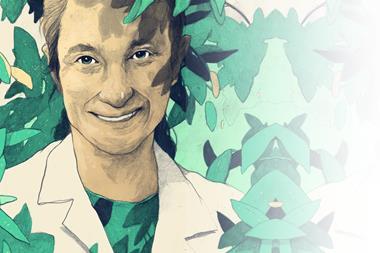How does knowing someone personally change your view of them professionally?
So many conversations begin with asking someone about their job. When I tell people I’m the editor of a chemistry magazine, they have a definition of me prepared: I’ll have a strong view on the Oxford comma, be a stickler for spelling, and know lots about chemistry. Only one of those things is true – I love an Oxford coma. But what of the reverse – how does having knowledge of the person influence your understanding of their work?
For example, in the writing of Franz Kafka it’s easy to spot themes of alienation, persecution and conflict between individuals and the societal structures that surround and control them. We use the phrase ‘Kafkaesque’ to loosely refer to nightmarishly complex and absurd bureaucracies of various kinds. Does knowing that Kafka was a lawyer, working in an insurance company, help our understanding of his work? How about that he had several engagements but remained unmarried until his death? Or that he visited a nudist colony yet remained the only person there who kept his swimming trunks on?
Arguably one of the biggest personalities in modern science, Richard Feynman, published as much biographical material as scientific research. The science, and the human behind it, are entwined and near inseparable in his case. All the better, many would say. Does knowing that he played the bongos help you understand his theories of quantum electrodynamics? Nope. But the collecting and sharing of little eccentricities and foibles is the stuff of human relationships and, to some small extent, I feel like I know something about Feynman. Thus, I am more receptive to what he has to say about science. Bluntly, I care a little more.
Social media may still be finding its feet as a serious primary channel for disseminating research but, as the ‘social’ part suggests, it is already a place where the community lets off steam. Yes, there are lots of cats, coffee and snark to be found on Twitter, but there’s also intimacy, honesty, adversity and joy. It’s one of the easiest and most visible ways of appreciating the humanity in the human endeavour that is scientific discovery.
This is not confined to social media of course. Projects like the 175 Faces of Chemistry, which celebrated the 175th anniversary of the Royal Society of Chemistry, used a multitude of individual voices and stories to showcase the broad and diverse community of chemistry research, education and policy. It was a valuable project, in my own case for the simplest of reasons: I simply didn’t know how broad the community was. My view was filtered by unconscious bias, blinkered by my own narrow experiences and clouded by the most visible profiles. I’ve spoken before about how media favours the soloist over the chorus and here is an example of how that becomes dangerous.
Without question, disseminating research is a vital and necessary function of scientific media. Research is a considerable part of Chemistry World’s coverage, and rightly so. Every survey tells us that research articles are of the highest importance and value to readers. But we also have a duty to represent the people involved, to capture the conversations and opinions that swell around the scientific community, and to demonstrate that there is no homogenous route to a scientific career; no mould from which all scientists are cast. Our culture section, including the first of our new interview series In situ with Melanie Sanford, seeks to provide this valuable perspective.
Yes, chemists do chemistry, but what a meagre definition and short conversation that would be.












No comments yet